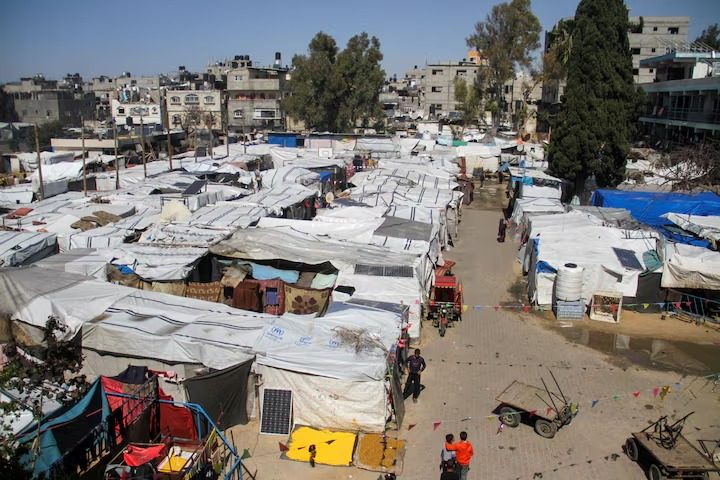
News Desk
TEL AVIV: In northern Gaza, Israeli forces intensified operations on Monday, pushing deeper into Jabalia, Beit Lahiya, and Beit Hanoun, trapping an estimated 100,000 civilians in the wake of escalating hostilities. According to the Palestinian emergency service, these civilians now face critical shortages in medical and food supplies. Israeli soldiers reportedly apprehended around 100 individuals they identified as Hamas operatives during a raid on Kamal Adwan hospital in Jabalia, though Hamas and local medics have denied militant presence within the hospital.
Gaza’s health ministry reported that Israeli airstrikes and bombardments claimed the lives of at least 19 people on Monday, 13 of whom were in northern Gaza. Meanwhile, the Civil Emergency Service cited the near cessation of its relief efforts due to the continued military activity, which has paralyzed services for those in need.
In response to these developments, diplomatic discussions aimed at securing a ceasefire resumed under the stewardship of the United States, Egypt, and Qatar. Egyptian President Abdel Fattah al-Sisi proposed a provisional two-day ceasefire that would see the release of four Israeli hostages held by Hamas in exchange for Palestinian prisoners. This initiative, if accepted, could pave the way for comprehensive negotiations on a permanent ceasefire. However, both Israel and Hamas remain steadfast in their positions, complicating immediate peace efforts.
In the broader Middle East, the Gaza conflict has stirred regional hostilities, with Israeli forces clashing with Hezbollah along the Lebanese border and Israel retaliating against Iranian missile sites following an alleged attack on October 1. This escalation has also led to unprecedented confrontations between Israel and Iran, highlighting the potential for the Gaza conflict to ignite further regional instability.



